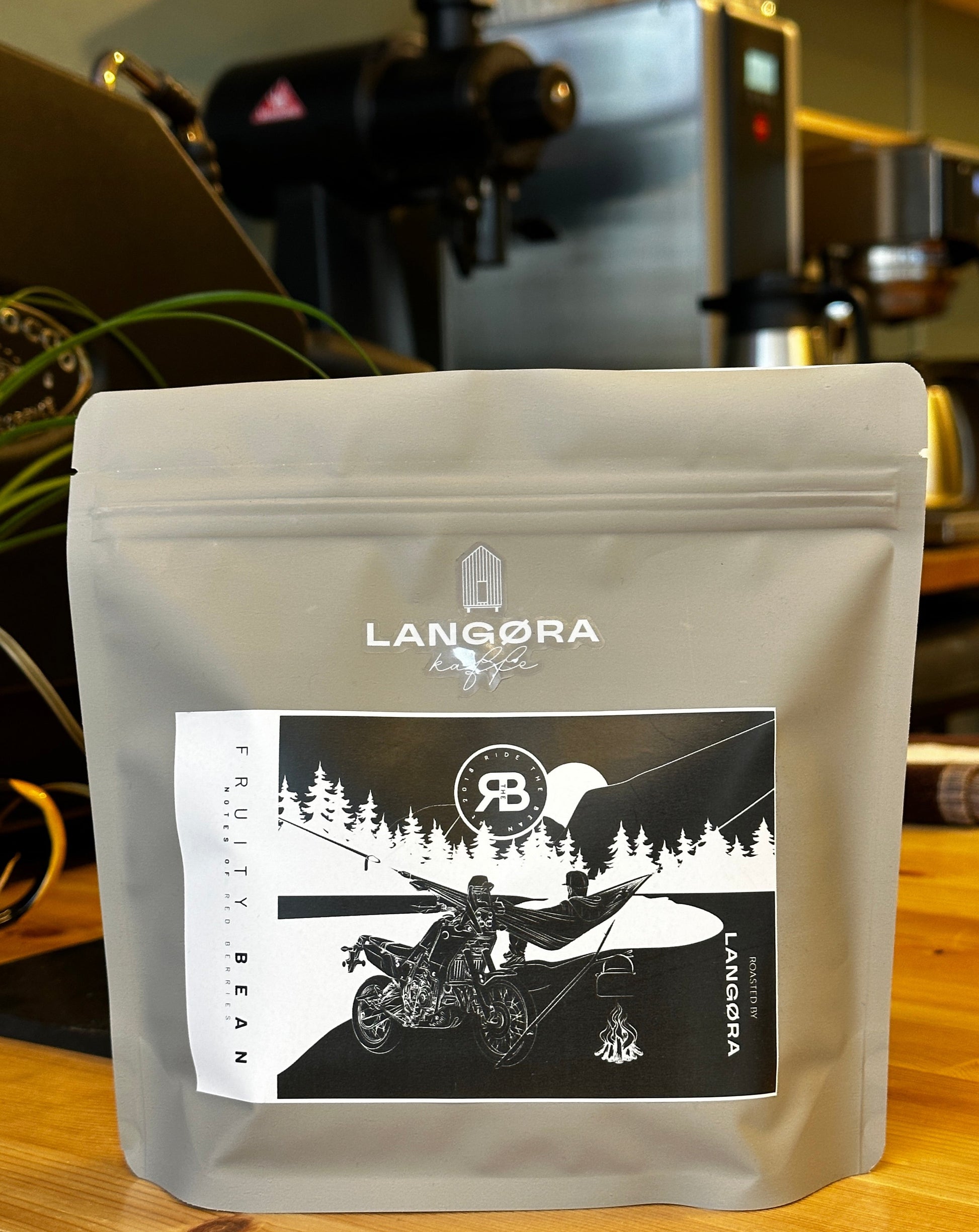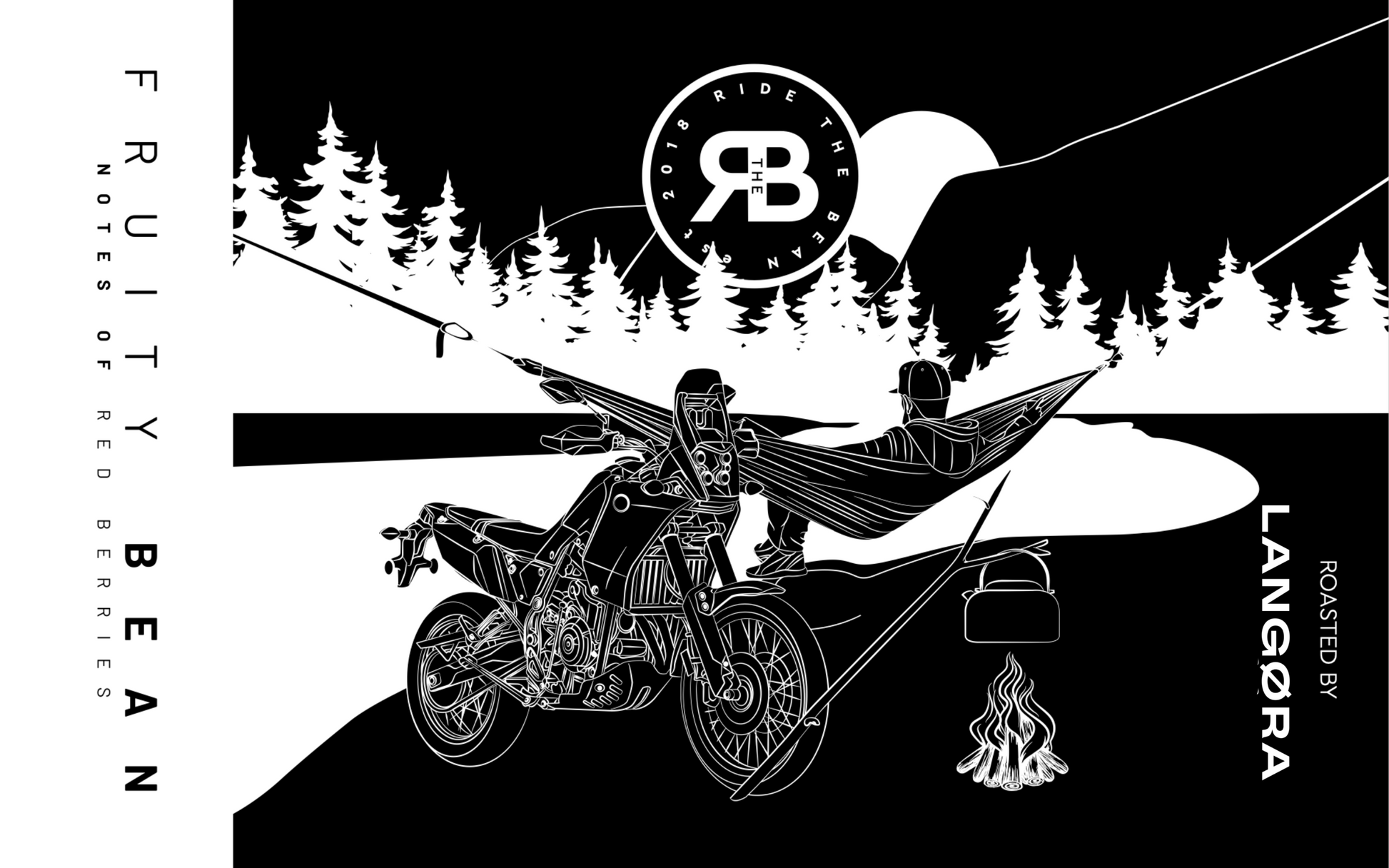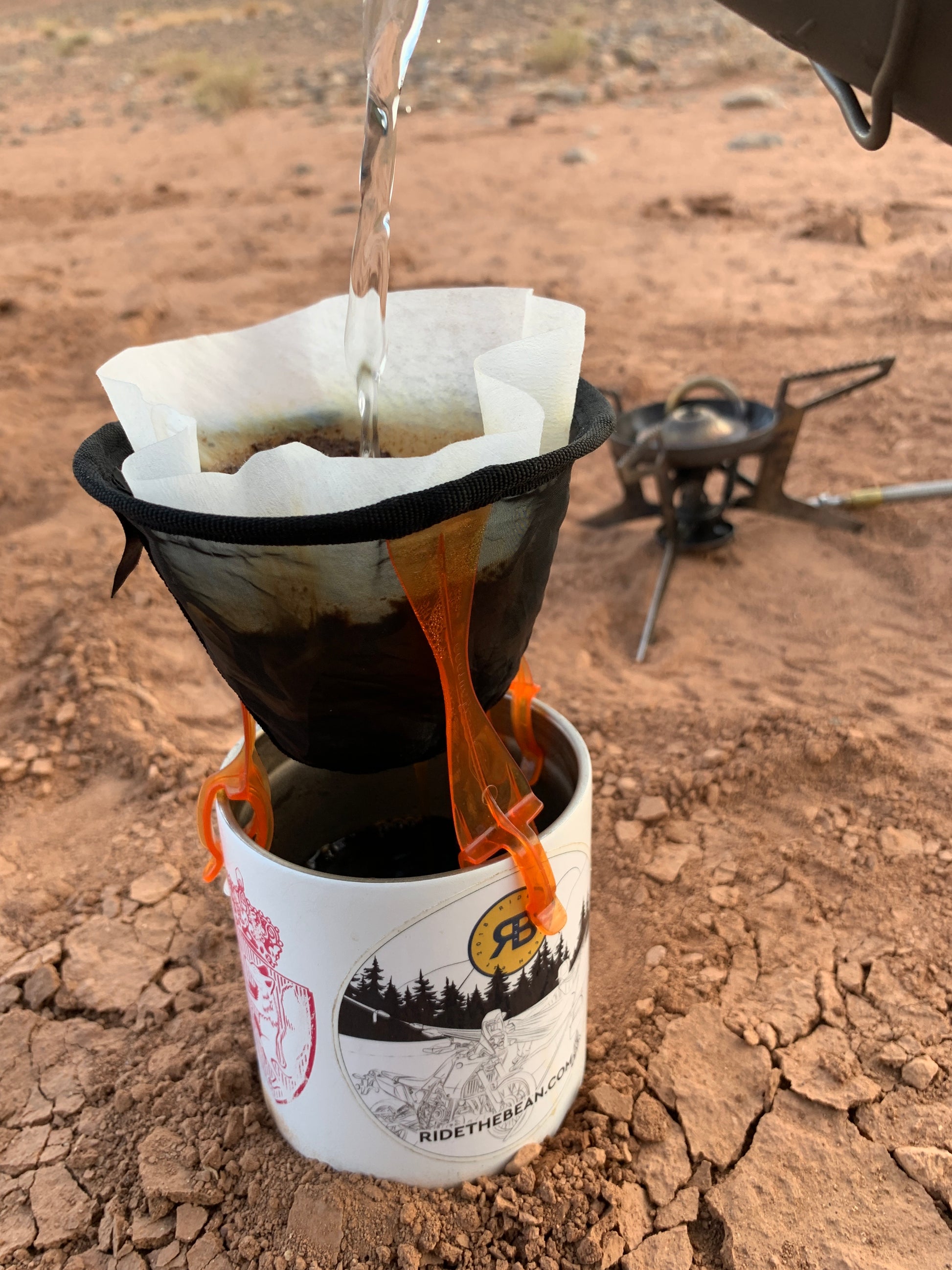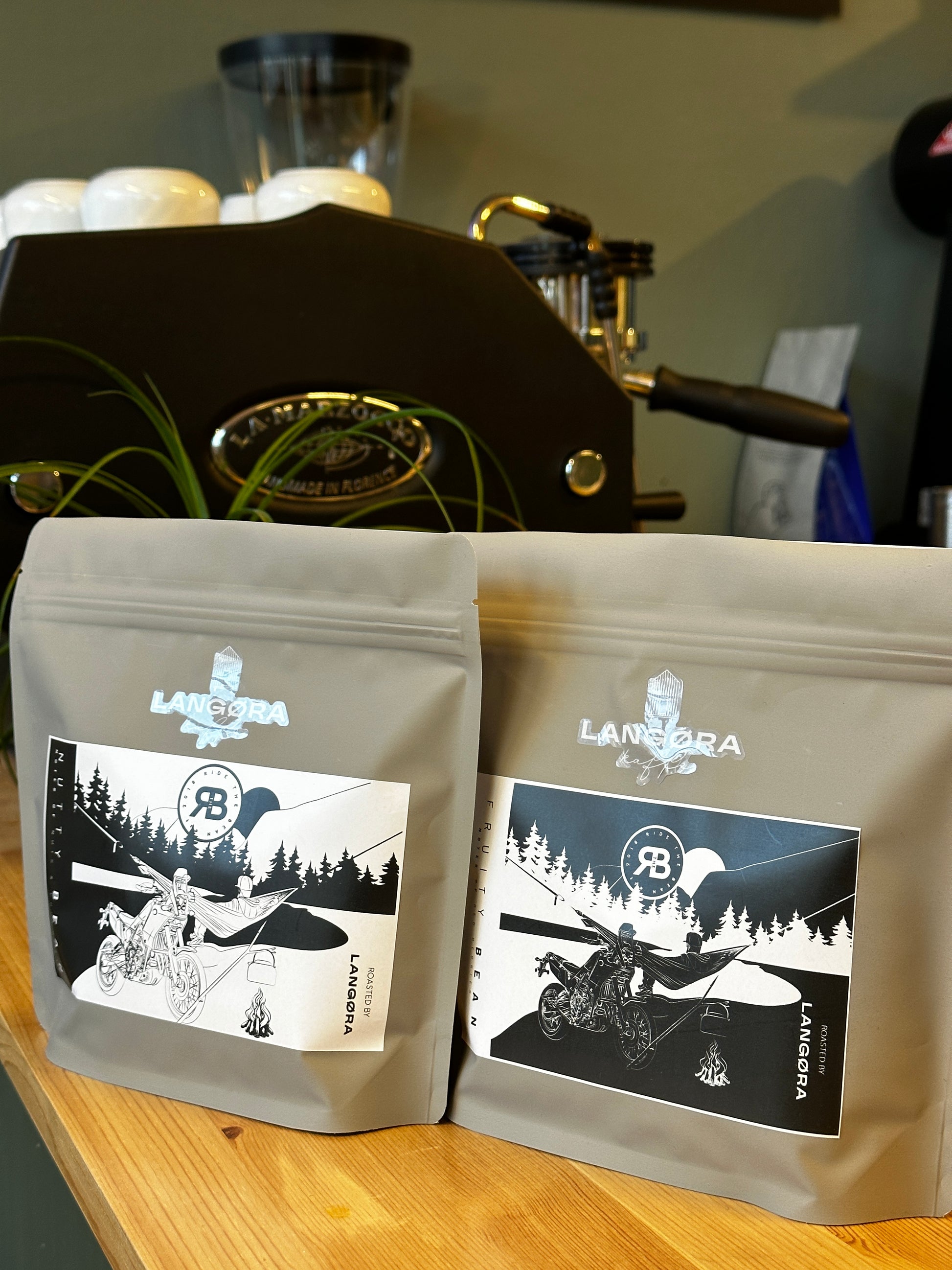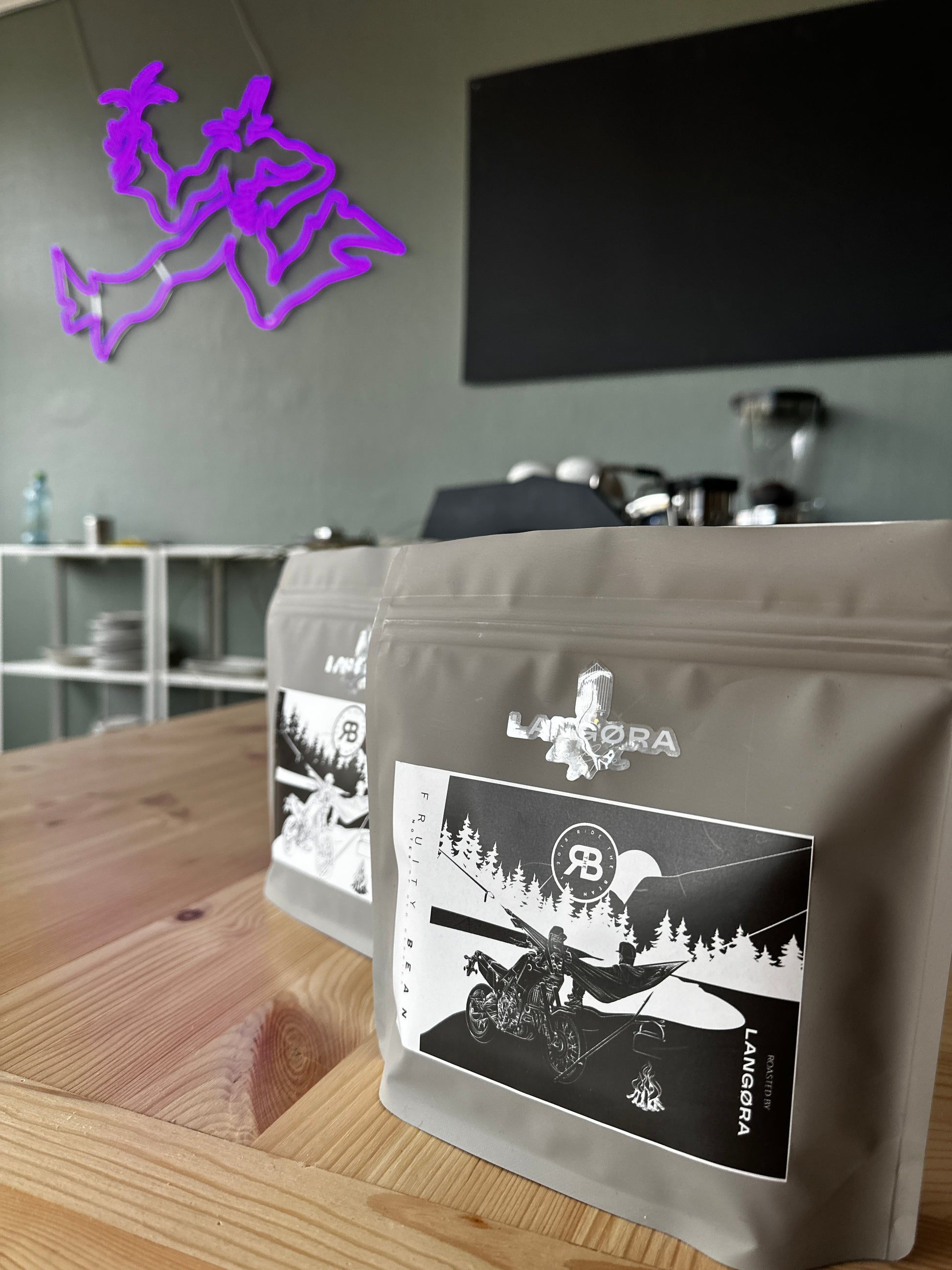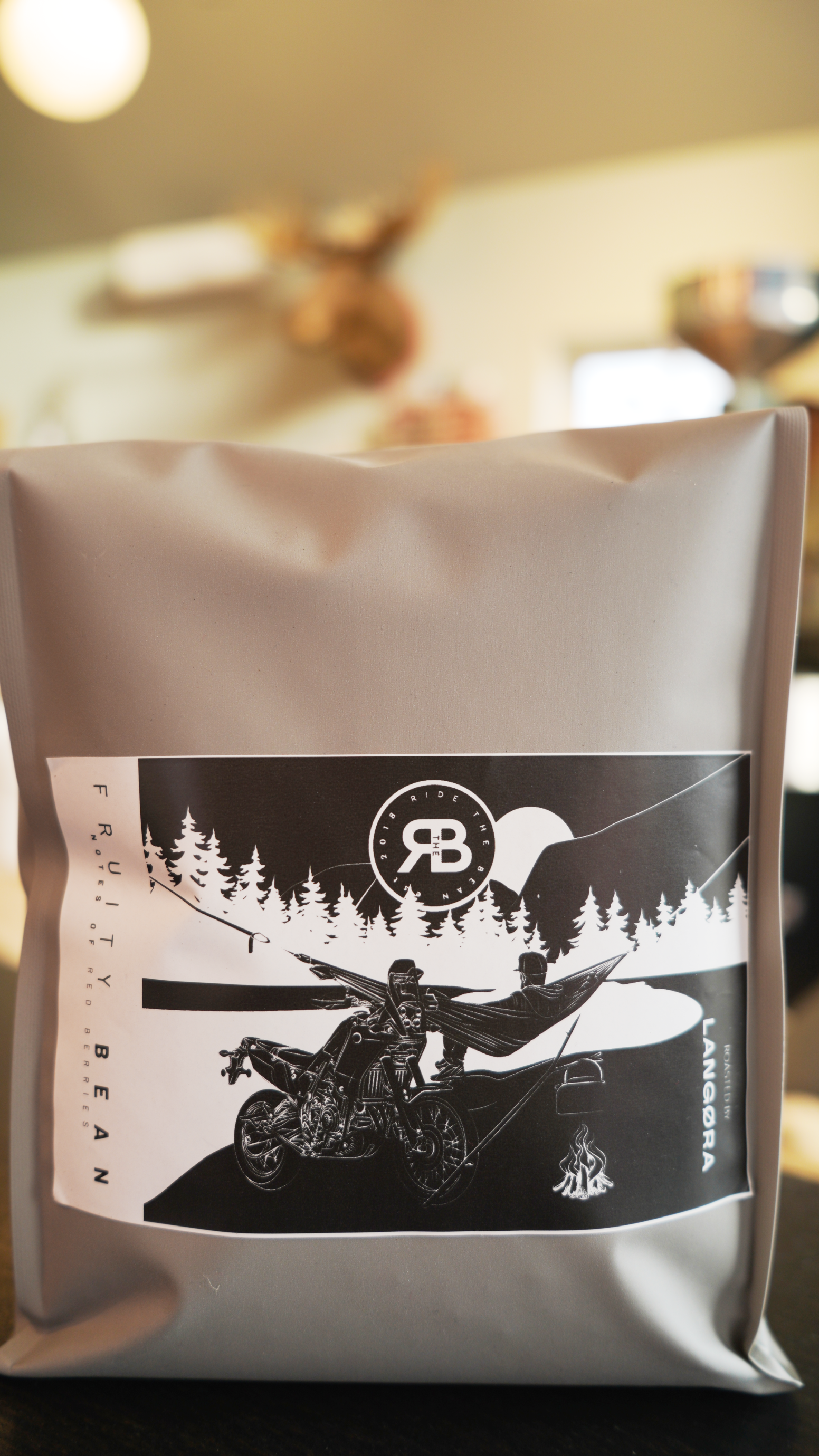Ride the Bean
"The fruity Bean"
"The fruity Bean"
Couldn't load pickup availability
The Fruity Bean is naturally processed coffee, with notes of red berries. Natural means that the coffee cherry is dried with the fruit still on, as opposed to being washed away before drying. This leaves a lot of the fruity flavor in the coffee. These beans are grown in high altitudes have developed very sweet flavours.
Coffee is a fruit. That means that it tastes best when it is fresh. That is why I always recommend grinding the beans right before use. This keeps the good stuff inside the bean much longer.
But if you don't have a grinder we are happy to grind it for you! Choose between whole beans, filter coffee (Medium grind) or cowboy coffee (Course grind)
You can also choose which size you want. We offer 250g and 1kg.
The beans are hand picked, and sourced from suppliers that value sustainability and good working conditions. They buy the beans directly from farmers or washing stations. The beans are then shipped to Norway, roasted by Charlie, Kristian or Kenneth at Langøra coffee roasters right outside of Hell before being shipped directly from the roaster to your mailbox.
This particular coffee is:
HALO BERITI, ETIOPIA
COUNTRY: Ethiopia
FARM/COOP/STATION: Kebele (Village): Halo Beriti
VARIETAL: Heirloom
PROCESSING: Experimental Carbonic Maceration
ALTITUDE: 2090m - 2150m
OWNER: Boledu, No. of farmers :>2200
SUBREGION/TOWN: Southern Nations, Nationalities and People's Region (SNNP)
REGION: Gedeo
HARVEST MONTHS: November, 2021 - January, 2022
FLAVOUR NOTES: Raspberry, Winey, Lychee, Cherry, Amaretto, Boozy, Cacao nibs


ABOUT THIS COFFEE:
Boledu, founded in 2018, means "source" in the local language and combines over 12 years of experience in coffee from both Abyote Ageze and Mebrahtu Aynalem. "We have been producing and exporting both natural and washed high-end traceable qualities in our own washing stations located in the Guji zone, Dimtu Hamblea, Yirgacheffe, Aricha and Gedeb. We also have vertical agreements in Uraga and in Sidamo, collecting quality coffees from different small farmers."
By vertical integration, Mebrahtu means the coffee is sourced directly from the washing stations and not purchased from the Ethiopian Coffee Exchange (ECX). "We prefinance the washing station owners and he agrees to supply us. If I was to get a good coffee at the ECX I wouldn't necessarily be able to do it again in the future. There is no transparency. For consistency, I must have an agreement directly with the washing station. I also have an agronomist there to help prepare the coffees," he explains.
"The farmers we work with have been working with us for a good time. Before the harvest, we train them and explain the standards of cherry collection for specialty coffee and the premiums that come with it. We have a quality supervisor at the washing stations looking into who is bringing good quality and who isn’t. Their job is really important! They know when someone mixes unripe cherries with the ripe ones. Up to 10% unripe is okay and we will sort them at a later stage, but if farmers bring more than that we know we might not work with them until they agree to the standards."
Internal prices for cherry have been high for the second consecutive year. In the Yirgacheffe area, buyers were paying 24 Ethiopian birr in November 2020 according to Mebrahtu. He says Boledu was paying around 25.50 birr to be above the competition and secure the supply. “However the farmers know they need to bring us the ripe cherries. And we buy from 10 to 16 thousand kilos of cherry every day during harvest season," he says.
For micro-lots such as this "we select the farmers we will work with before the harvest season and train them for 3 days on the best picking practices. We need very good consistency. And as most farms are too small to make a whole lot, we will combine their cherries according to their location, so the same type of soil, altitude, rain patterns, heirloom varieties etc. We will then have to combine their pickings of two days, like Wednesday and Friday for example, to make an interesting volume," Mebrahtu explains.
One of the core values of their business is to inspire people through coffee. Throughout the years they have invested in providing workers with fair wages, safe living conditions, health services, food and education. They also work with smaller producers in the area to help them improve their farming practices.
HARVEST AND PROCESS:
This process was inspired by wine producers. The cherries are placed in containers where the oxygen is physically forced out with compressed CO2 which then allows the bacteria to flourish. In wine, the idea is to break down the inside layers of the fruit and soak all of the juice into the seeds in a controlled fermentation without yeast as opposed to coffee which uses whole cherries that undergo fermentation to break down the cell walls of the mucilage from inside out. The pH and temperature of the tank are closely monitored. When the cherries are taken to the drying beds their skin has lost of a lot of their bright red colour and turned into a stained orange. The cherries are sun-dried on African beds in thin layers with constant moving to ensure an even drying of the coffee. The result is a lively coffee with accentuated fruits and a clean with a vibrant finish, perfect as a filter brew. Notes of peach, mango and honey.
EXPORTER
Boledu Coffee is the operator of washing stations in the Yirgacheffe district (Konga, Gedeb, Aricha) and the Guji district. Integrated supply chains with farmer out-growers in both districts and are organically certified, maintaining traceability throughout the supply chain to ensure the best quality. Founded in 2018 by two friends Abiyot Ageze and Mebrahtu Aynalem, the company aims to work with farmers in partnership to showcase the best of their coffee by bringing the best practices for coffee preparation & management to Ethiopia.
COFFEE IN ETHIOPIA
Ethiopia’s long coffee history predates written records. Arabica plants are native to Ethiopia, and many of the Arabica varieties now cultivated worldwide have their genetic roots in wild coffee growing in Ethiopian forests. With such easy access to wild-growing coffee, it is undoubtable that early people in Ethiopia consumed coffee for centuries before it became the global beverage that it is today.
The long tradition of coffee in Ethiopia has continued into the modern day. Coffee drinking is widespread in both social and cultural contexts and has a place at a wide range of social events. Nearly half of all coffee produced in the country is consumed on the domestic market. That’s no small feat for a country that produces some 860 million pounds of green coffee beans annually.
Coffee also provides the main income for up to 25% of the population. More than 15 million people grow coffee as their major cash crop. The Ethiopian government also depends on coffee to generate between 25 and 35% of total annual export earnings.
Each bag sold gives Munin a few extra km.
So thank you so much!







